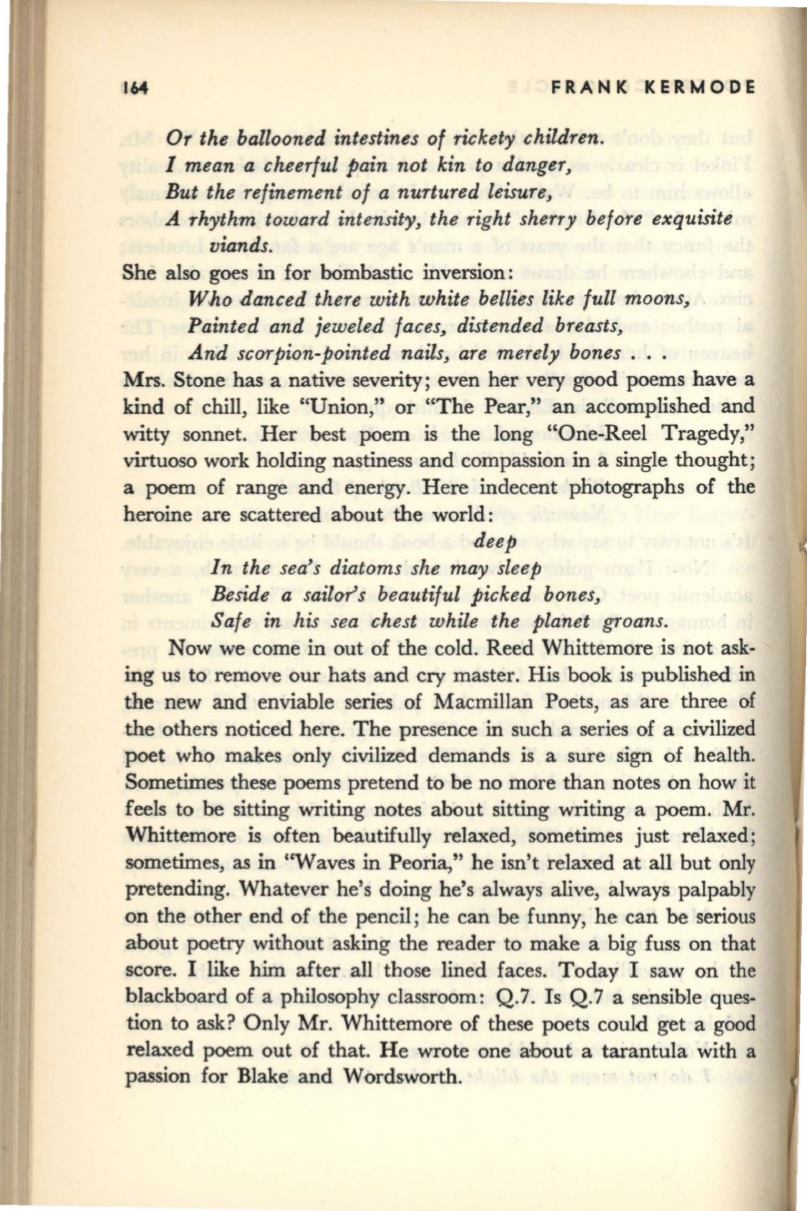
164
FRANK KERMODE
Or the ballooned intestines of rickety children.
I mean a cheerful pain not kin to danger,
But the refinement of a nurtured leisure,
A rhythm toward intensity, the right sherry before exquisite
viands.
She also goes in for bombastic inversion:
Who danced there with white bellies like full moons,
Painted and jeweled faces, distended breasts,
And scorpion-pointed nails, are merely bones .
..
Mrs. Stone has a native severity; even her very good poems have a
kind of chill, like "Union," or "The Pear," an accomplished and
witty sonnet. Her best poem is the long "One-Reel Tragedy,"
virtuoso work holding nastiness and compassion in a single thought;
a poem of range and energy. Here indecent pliotographs of the
heroine are scattered about the world:
deep
In the sea's diatoms she may sleep
Beside a sailor's beautiful picked bones,
Safe in his sea chest while the planet groans.
Now we come in out of the cold. Reed Whittemore is not ask–
ing us to remove our hats and cry master. His book is published in
the new and enviable series of Macmillan Poets, as are three of
the others noticed here. The presence in such a series of a civilized
poet who makes only civilized demands is a sure sign of health.
Sometimes these poems pretend to be no more than notes on how it
feels to be sitting writing notes about sitting writing a poem. Mr.
Whittemore is often beautifully relaxed, sometimes just relaxed;
sometimes, as in "Waves in Peoria," he isn't relaxed at all but only
pretending. Whatever he's doing he's always alive, always palpably
on the other end of the pencil; he can be funny, he can
be
serious
about poetry without asking the reader to make a big fuss on that
score. I like him after all those lined faces. Today I saw on the
blackboard of a philosophy classroom:
Q.
7. Is Q.7 a sensible ques–
tion to ask? Only Mr. Whittemore of these poets could get a good
relaxed poem out of that. He wrote one about a tarantula with a
passion for Blake and Wordsworth. ·


